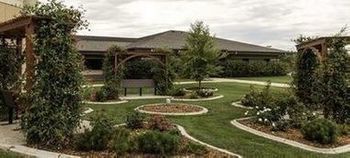
Self-harm is a coping mechanism that many people turn to for relief. It is most common among teens, but can impact anyone. That is why behavioral health organizations like Rosecrance Jackson Centers recognize Self Injury Awareness Month each March.
According to the American Journal of Public Health, about 17 percent of American teens have engaged in non-suicidal self-injury behaviors such as cutting skin, punching, head banging, or burning. These behaviors are increasingly leading to emergency room visits, particularly during the first year of the COVID-19 pandemic, which saw insurance claims for intentional self-harm among teens nearly double and then stay elevated through the first year.
In comparison, about 5 percent of adults self-harm.
Many clients who seek residential treatment at Rosecrance Jackson Centers have experienced self-injury at some point in their lives. The behavior tends to be most common among those who have experienced bullying, trauma, and depression.
“It is important to see self-injurious behavior as a cry for help and not to shame the person,” said Rosecrance Jackson Centers psychiatrist Dr. Nesrin Abu Ata. Sometimes it helps to think of self-injurious behavior no different than someone presenting with chest pain or abdominal pain needing more medical attention.”
If someone might be harming themselves, the most important thing to remember is to watch your emotions. Because of the outward signs, it is tempting to focus on the harmful behavior, and that may lead the person to feel judged or stigmatized for their internal and external struggles.
Concerned loved ones are encouraged to watch for signs such as unexplained injuries or cuts, unexpected hiding body parts by wearing long clothes in warm weather, more frequent isolation, or increased depression.
If you or a loved one are concerned about self-injury, Rosecrance Jackson Centers’ caring Access team is available to talk with you. They can be reached by calling 800-472-9018.

